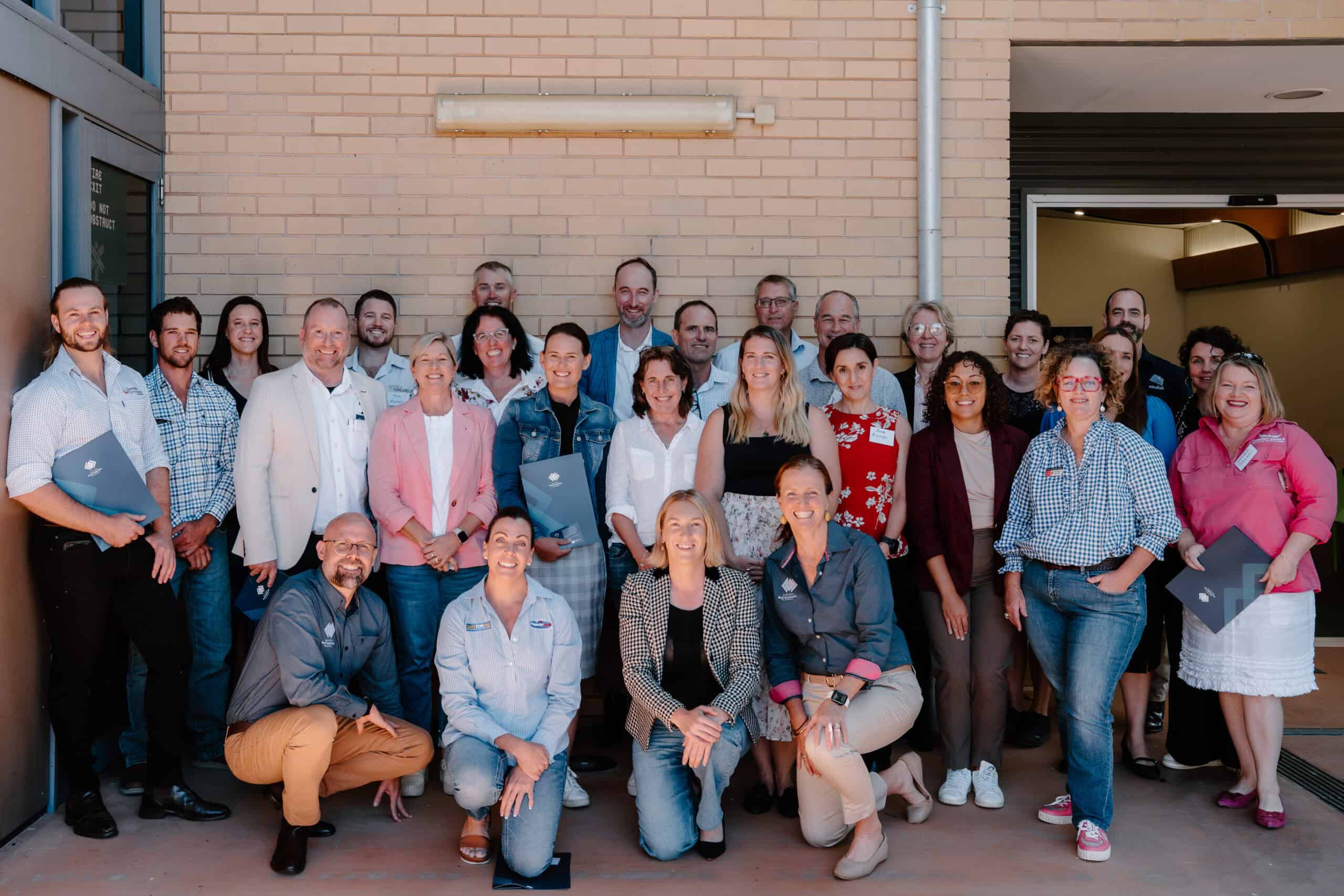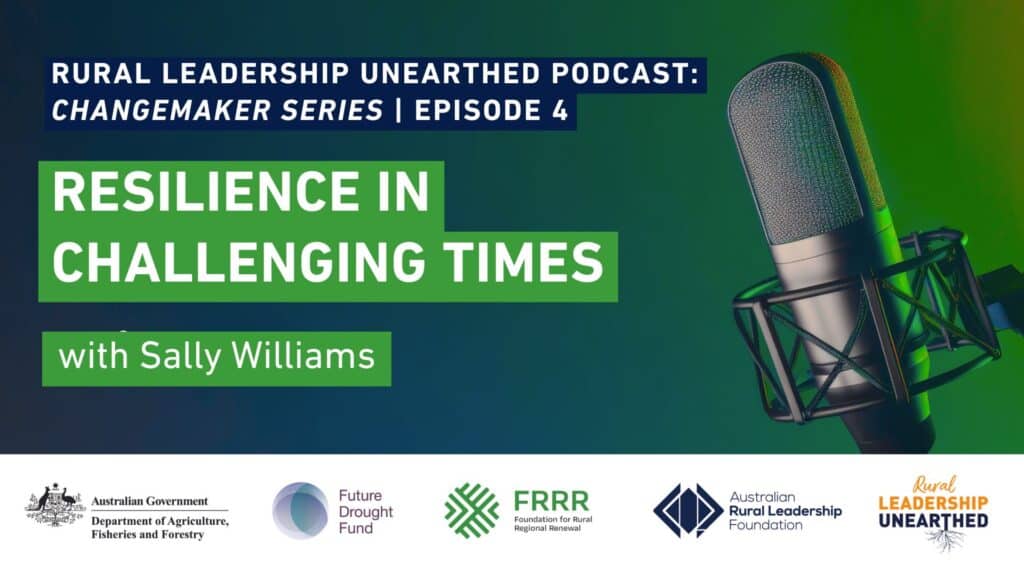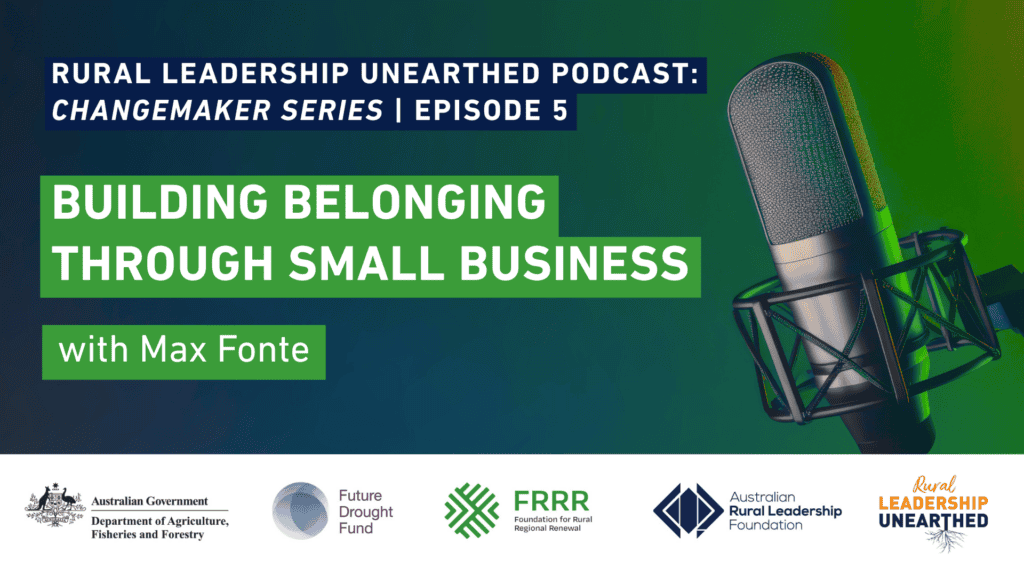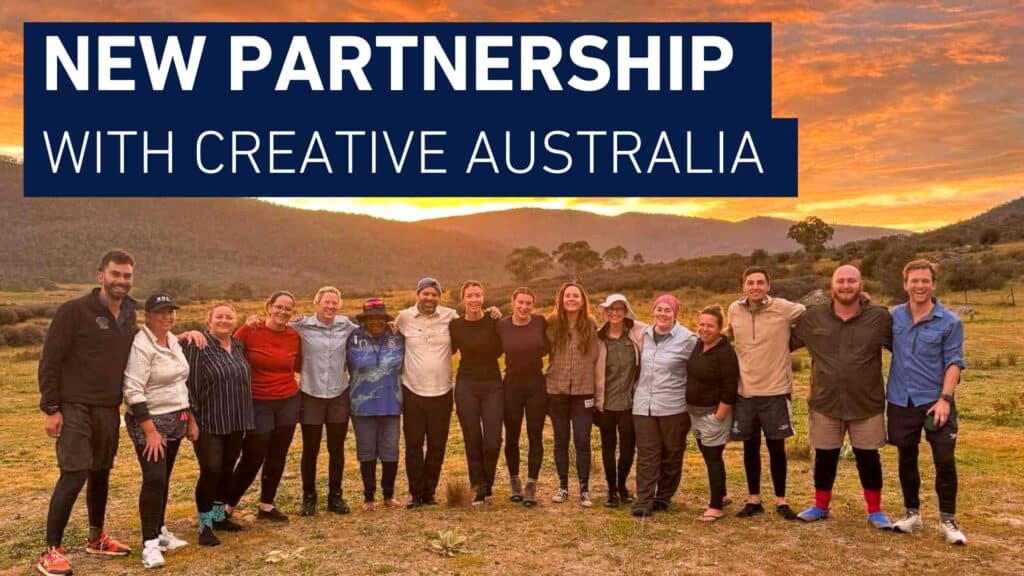Change is in the air for Southern Queensland as it transitions to a major renewables zone.
With the Queensland Government setting an ambitious target of 80 percent of the state’s energy supply to come from renewables by 2035, the region is projected to generate up to 12,200 megawatts of new renewable energy.
As local energy generation transitions to solar farms and wind turbines, the region’s landscapes, economies and communities will also be transformed.
But how will communities within the Southern Queensland Renewable Energy Zone be impacted? And how can balance be found between competing priorities? These were just some of the big questions that were discussed at Shape Your Energy Future (ShEF), a place-based leadership program funded by Boundless Earth and facilitated by the Australian Rural Leadership Foundation (ARLF) and Queensland Conservation Council (QCC).
Designed to drive community-led responses towards local issues, the program held in early 2024 supported people living in the Western Downs and South Burnett to navigate the challenges and opportunities presented by the renewable energy sector. To do this, participants from agriculture, local government, environmental groups, not-for-profit organisations and the energy sector all came together for a five-day leadership program followed by six weeks of virtual learning and a one-day public forum where project groups presented their ideas to the public.
As participants from varying backgrounds shared their knowledge and experiences at a secluded venue in the Bunya Mountains, they soon discovered there was plenty that unites them.
“We’re not so different after all”
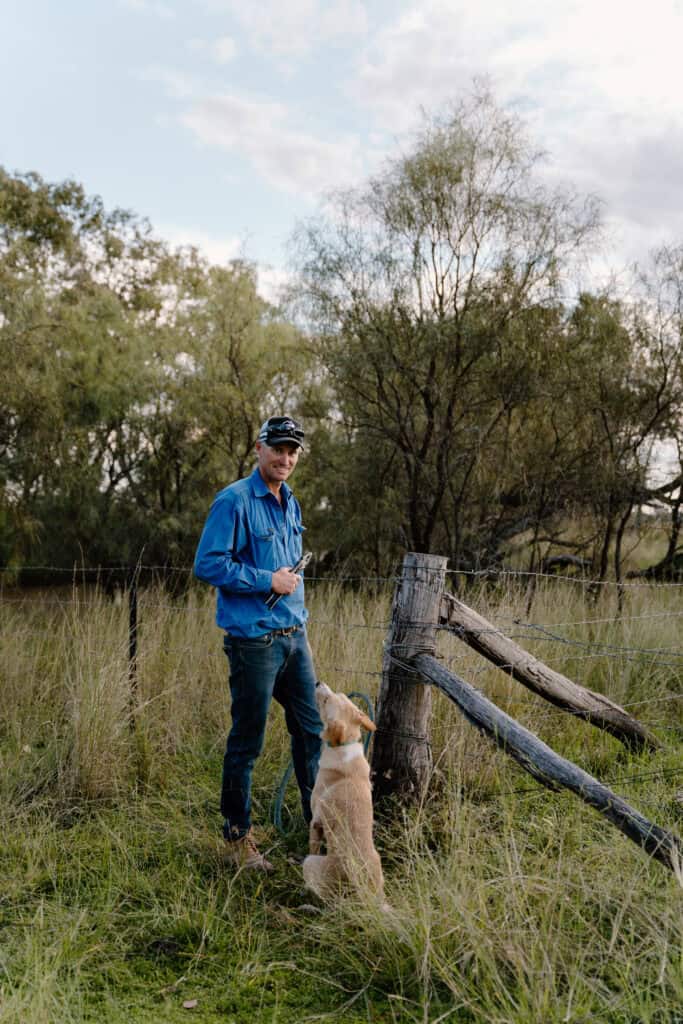
Adrian Story wears many hats. The Dalby-based landholder is a grazier, but he’s also an agriculture construction consultant with a background working in both renewables and gas. It’s this unique combination of experience and interests that made him a worthy candidate to join the ShEF program.
Ask any primary producer to take a week away from the farm and they’d likely tell you you’re dreaming. But this is exactly what Adrian did, cramming a fortnight of work into one week before heading to the in-person leadership program.
“I’ve got a lot going on. I probably take on more than what I should, but to take a week out was absolutely huge. But I don’t see that you could have done it any other way, because you wouldn’t have got the same results as we got by being fully immersed in it,” he says.
Having bought the land his grandfather acquired via the World War Two Soldier Settlement Scheme, Adrian has a deep understanding of the special connection landholders have to their properties.
“A lot of landholders are generational. They have an enormous connection to that land. It’s not just their home and workplace – it’s who they are, it’s a part of them. You get attached to the property because you put your own blood, sweat and tears into it,” he explains.
Adrian describes himself as a rural landholder first and foremost, but he also considers himself to be a bit of an environmentalist. After all, he’s worked in renewable energy, his property has a worm farm septic tank system, and his wife is currently creating a small business focused on recycling plastic waste.
“If you want the true definition of sustainability, go and look at a generational family farm. A few generations might do a few things wrong, but overall they can’t afford to do things wrong if they want to pass it on to the next generation. To me, that’s sustainability at its core,” he says.
Adrian shares that the program enabled him and other participants to mull over some of the challenges the renewable energy sector faces. One of those issues is waste. Adrian believes that the wind and solar sectors can’t quite call themselves truly renewable if the materials used to create the infrastructure are destined to end up in landfill. He’s now working on a project aimed at investigating options for recycling solar panels once they reach the end of their life.
Another hot topic among participants was how to counter incorrect information and wrong assumptions being shared within the community. He shares that when renewable energy developers come knocking, it’s hard for landholders to make sound decisions amid the confusing and conflicting information that makes its way around town.
“You’ve got to get the message across to farmers and landholders where they’ll see it. And it’s not Facebook. It’s usually the regional newspapers and local community groups and organisations. We need to share information and knowledge on the ground, in places where farmers will find it,” says Adrian.
With many regional communities across Australia being earmarked for renewable energy development, Adrian believes there’s much to be learned from other regions that are undergoing or have undergone similar changes.
“Shape Your Energy Future is a very valuable program. It needs to be rolled out in more locations across the country, especially in places like Gladstone, Biloela and Hughenden. I just think there’s so many people out there that need more information, because there’s still so many unknowns when it comes to renewables. Somehow, we need to share our knowledge further,” he says.
After spending a week together and numerous online sessions with other participants, Adrian’s main takeaway is that he’s got more in common with others than he realised.
“I was amazed by the diversity of people that participated in Shape Your Energy Future. Bringing everyone together in the same room for five days showed me that we’re not so different after all.”
Finding the middle ground
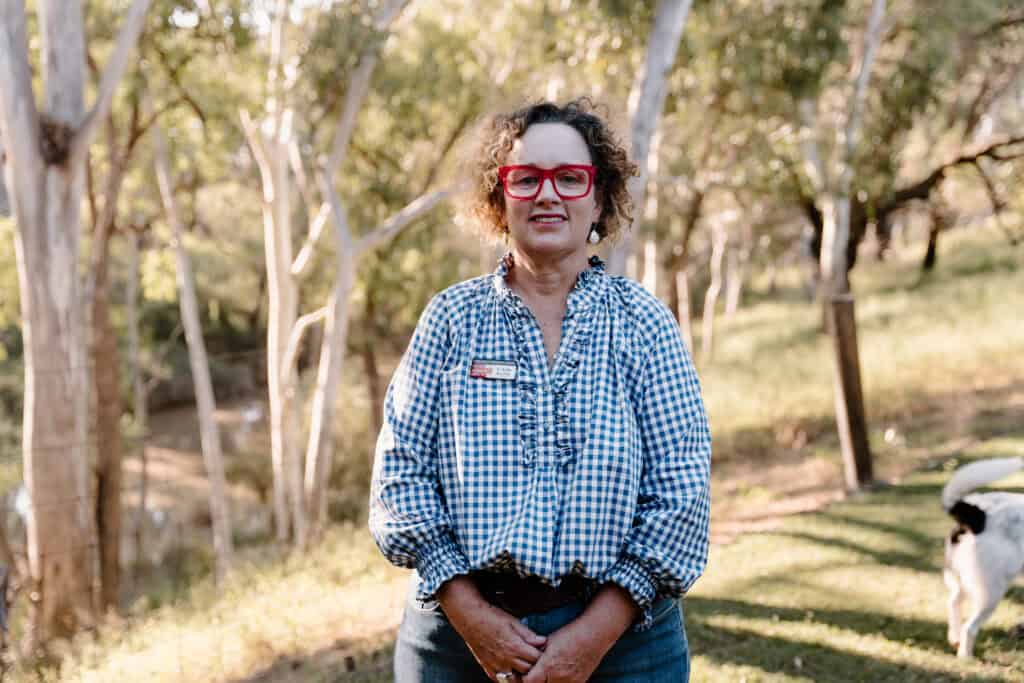
As a landholder of a small farm and Deputy Mayor of Western Downs Regional Council, Kylie Bourne understands the tensions that can arise within the community when change comes to town. Balancing the interests of farmers, environmentalists, developers and the wider community is challenging, yet Kylie believes middle ground can be found in the Western Downs, an area proudly trademarked as the “Energy Capital of Queensland”.
“I’m hopeful we can find a dialogue where people are respectful in understanding the impacts – and the impacts are real to people in the country where infrastructure will enable the environmental measures needed to achieve net zero. Internationally and nationally, we’ve all got a responsibility,” says Kylie.
With a background in education and community advocacy, Kylie shares that the initial week spent together with other program participants was beneficial for forming new connections and strengthening existing relationships.
“Being in that environment together was great because it wasn’t just about the workshop sessions, it was also about getting to know each other on a different level during the downtime,” says Kylie, who explains that sharing accommodation, drinks and meals with other participants allowed conversations to flow outside of the professional sessions.
Kylie found the breakout sessions focused on examining leadership styles to be particularly interesting.
“I really enjoyed the opportunity to delve deeper into my own personality traits and where they sit among other people. It’s amazing that we have such a diverse range of people with different interests, skills and leadership qualities that can come together with the shared aim of making a difference,” Kylie reflects.
With a significant proportion of the area’s council rates coming from the resources and renewables sector, Kylie describes the industry as a “key contributor” in the region. However minimising impacts on other important industries (like agriculture) remains an ongoing challenge and front of mind as the region moves into the energy transition.
“We know that a diverse economy is important for our region because it’s critical for liveability, growth, and jobs. If we solely relied on one industry, we’d be in trouble. Viability and sustainability for local governments and regions is key,” Kylie says.
Participants created and worked on many different projects during the program, but since Kylie is passionate about the creation of legacy outcomes for communities, one particular project aimed at developing a Community Benefit Fund stood out. The group has linked up with a not-for-profit called Community Power Agency to research and document a process aimed at sharing the benefits of renewable energy projects with the Western Downs community via means such as grants, partnerships or community co-ownership.
Kylie reflects that while each participant had different thoughts about the energy transition and what it means for their region, she believes the group is united in its desire to support the community they live and work in.
“My key takeaway is that everybody was there for a common good, and that’s to make a difference in some small or large way. That’s our common goal. At the end of the day, we’re all just normal people trying to do a good thing in our communities. Together, I believe we can move through the energy transition to find a level of co-existence,” Kylie shares.
Putting all the puzzle pieces together
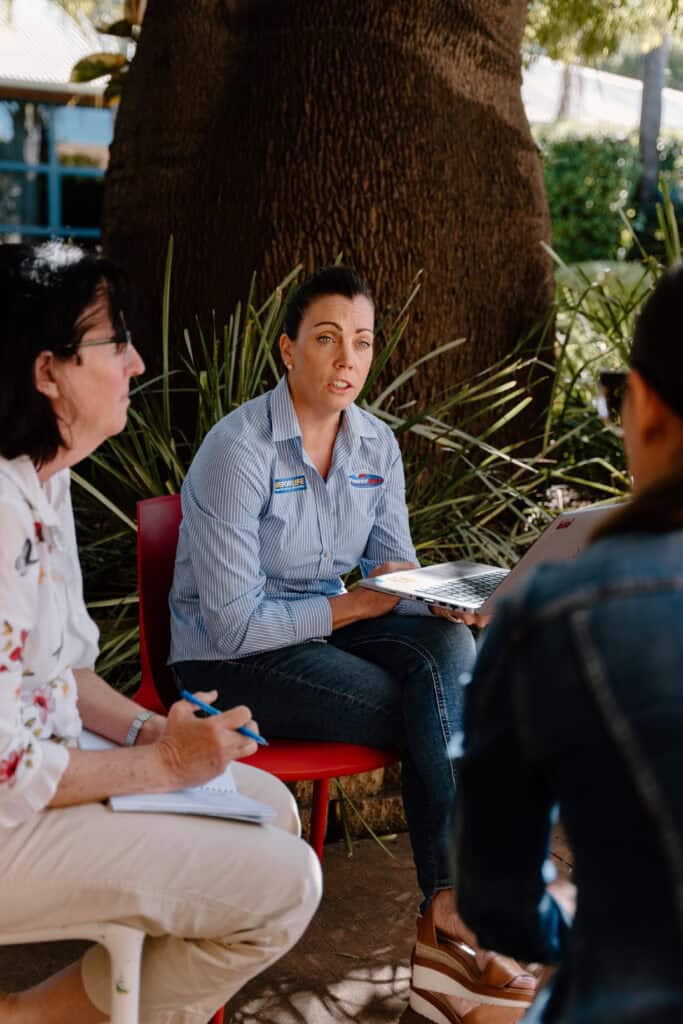
Bec Coffey may be based in Brisbane, but she’s a rural Queenslander through-and-through. From growing up in Dalby to managing an almost million-acre cattle property up north, then living in Roma for a decade, Bec understands all the ins and outs, ups and downs of living in the country.
Taking on a Community Relations Advisor role with Powerlink Queensland a year ago, she now spends a lot of time on the road supporting communities throughout the south of the state including the Maranoa, Western Downs, Somerset and Burnett regions.
“I’ve had the blessing of living in rural or remote communities my whole life. Even though I’m based in Brisbane, a lot of my time is spent out in the community. I don’t think I can understand communities well enough if I’m not out there participating in them,” says Bec, who connects with people by attending local events, meeting with volunteer groups and visiting schools.
Although she’s accustomed to chatting to people she hasn’t met before, she shares that starting each morning of the in-person leadership program with a rainforest walk and finishing the day with a communal dinner helped to forge deeper connections with other participants.
Bec reflects that having everyone from farmers and landholders to environmental advocates, energy industry professionals and local council representatives in the room was highly beneficial.
“It was a complete puzzle of people that are impacted – but also can come together to make a difference – all in the one environment, listening and learning from each other,” says Bec, who adds that linking up with other program participants has proved to be invaluable.
“You can’t underestimate the importance of having a really strong network of connections to share information with.”
Bec points out that she found the workshops that took a deep dive into leadership qualities had a big impact on her.
“As an emerging leader, it’s important to understand the strengths that I have as an individual, and how I can use those strengths to help guide our communities through this change,” she shares.
Another session Bec found interesting highlighted the benefits of taking a step back to take a macro view of the challenges being faced.
“I think sometimes we go in with our narrow view of our area of focus, but we forget to look at the bigger picture because we get so focused on individual projects or tasks,” Bec says, who adds that the virtual sessions helped to keep motivation high after the initial in-person module.
When it came to working on a special project with other participants, Bec knew exactly what issue she wanted to address. With much of the community still in the dark about why renewable energy is necessary, Bec (along with a few other participants) is now working towards creating an information roadshow to keep locals informed about proposed changes.
“To me, knowledge is power. And if you don’t have enough knowledge, you can’t make informed decisions,” she explains, before adding: “By having a number of participants working on each initiative, we can all hold each other and ourselves accountable to keep it progressing.”
Despite the challenges, Bec is optimistic about the future. Especially since she now has a fresh network of people who she can rely on to share knowledge with.
“This change is hard for people to go through. Especially when they feel like it’s being done to them and not with them. But fundamentally, we’re all passionate about helping our communities thrive through this renewable energy transition,” Bec says.
Shape your Energy Future was funded by Boundless Earth and delivered by the Australian Rural Leadership Foundation and Queensland Conservation Council. The program’s aim is to support communities to navigate the challenges and opportunities of renewables via a local leadership network.


